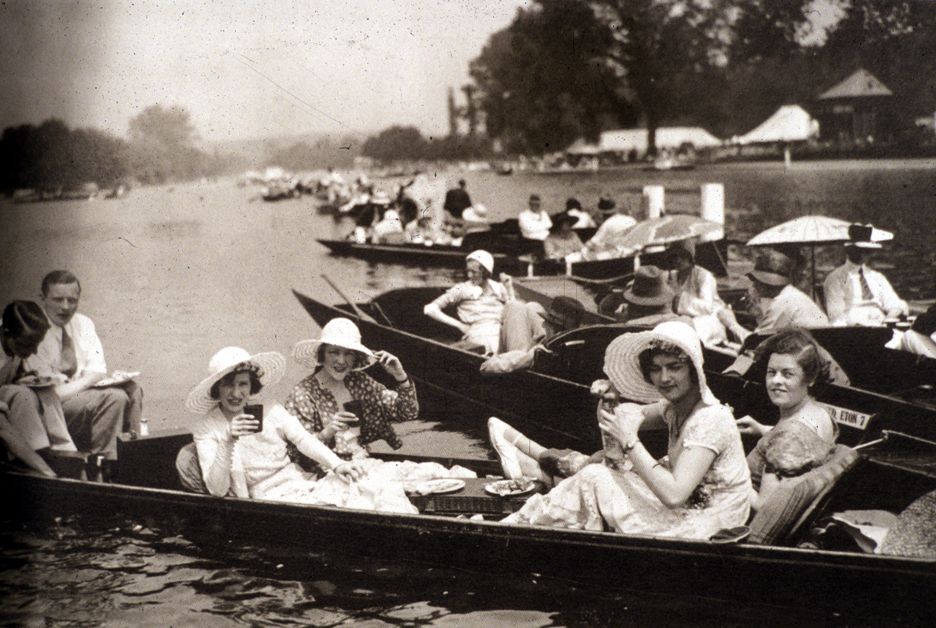
Life in the Weimar Republic before it all ended badly. (Photo courtesy Eric Weitz)
All around the Web, in print, and on radio comes the claim that America has entered its “Weimar” phase. Economic collapse, political paralysis, rampant homosexuality, a desperate, disoriented populace open to the ravings of a demagogue – that is the portrait we get of Germany between the end of World War I in 1918 and the Nazi seizure of power in 1933. That is where America is supposedly situated in 2016.
Yes, Weimar Germany ended badly, horribly so. But the America of today bears little similarity to Germany in the 1920s and early 1930s. America is a society ripped through by gaping inequalities, but it is hardly in a state of economic collapse. It still boasts the world’s largest economy and it has recovered from the Great Recession far better than many others in the Western world. America is still a powerful country internationally, one that deploys its military at will, something that Germany, suffering under the strictures of the Versailles Peace Treaty, could never attempt. Yes, there’s political paralysis in Washington, yet it barely rises to the level of Weimar Germany, where over 20 parties were represented in the Reichstag and the country was governed by a presidential dictatorship for the three years prior to the Nazi takeover.
Moreover, commentators right and left, focused only on the negatives and the disasters that ensued – the Third Reich, World War II, and the Holocaust — leave out so much about the great democratic experiment that was the Weimar Republic. Germans had greater political freedoms than ever before. A vast program of public housing moved hundreds of thousands out of dank tenements into modern, light-filled apartments. Public health clinics sprang up all around the country, and many of them offered sexual counseling to a population that physicians claimed lacked fundamental knowledge about reproduction and the pleasures of the body and lived in sexual misery. Literature, philosophy, music theater and film all flourished, much of it new, edgy and experimental. Brecht and Weill’s Threepenny Opera, Thomas Mann’s The Magic Mountain, Martin Heidegger’s Being and Time – these and much more are great markers of 20th century Western culture that we still read, view and hear with pleasure and profit.
The lessons to be learned from Weimar Germany are not the ones we hear and read about today. Weimar Germany did not collapse under the weight of its various crises. It was actively destroyed by a conservative elite – noble landowners, high-level state officials, businessmen, army officers – that chose to ally with the Nazi Party. As we watch the Republican establishment’s ineffectual flailings to stop Donald Trump, it’s worth remembering that Weimar Germany’s old-style conservatives never really liked Hitler and the Nazis either. To them, the Nazis were too loud, uncouth, low class. But they admired Hitler’s nationalism, his promise to revive Germany’s great power status, his opposition to democracy, and his anti-communism. And they were either indifferent to or actively supported the Nazis’ anti-Semitism.
The conservative elite got much more than they had bargained for with their willingness to turn political power over to the Nazis. Some would live to regret their choice, many not until American and British bombs rained down on Hamburg, Berlin and other cities and the Red Army approached the gates.
But the conservatives had made Hitler and the Nazis salonfähig, as one says in German. Colloquially in English, that means “acceptable in polite society.” That is the real lesson from Weimar Germany and the real danger – when traditional or moderate conservatives throw in their lot with radical conservatives. The moderates may not like the radicals, may not embrace them, but when other alternatives have failed, they bring the radicals into the fold, claim that power will inevitably moderate their more wild side, reassure the population that the radicals are really not that bad after all.
That is where we are today with Donald Trump. Trump is not a fascist or a neo-Nazi, as some have claimed, though he has certainly made countless racist and misogynist comments. He has also proclaimed a blatant disregard for laws, treaties and constitutional provisions in an America that is supposed to be governed by the rule of law. While some Republicans are back pedaling and trying to block a Trump nomination, we are still being treated to the spectacle of many Republican candidates and office holders asserting that they will support him if he is chosen by the party. These are the people who are making Trump salonfähig.
The real issue is not whether Trump is a modern-day Hitler or Mussolini. The problem lies deeper: with the social and political mores that have made possible his crude nativism and contempt for social progress. Democrats and Republicans alike have been marveling at his success as if it were a bolt out of the blue. Yet for years now Republicans have been bowing before the idol of radical conservatism. They have cowered before the tea party and have stashed the party coffers with immense contributions from the Koch brothers’ operation. The people who are now struggling to stop Trump are the same ones who made his views salonfähig.
In America today, the major threats do not come from abroad. They lie within, from those who claim to believe in democracy yet undermine its substance by deploying great wealth in the political process and devaluing the diversity of American society. And the danger comes especially from those who perhaps should know better, but make anti-democratic, radical conservatives salonfähig. That is the real lesson to be taken from Weimar Germany.




